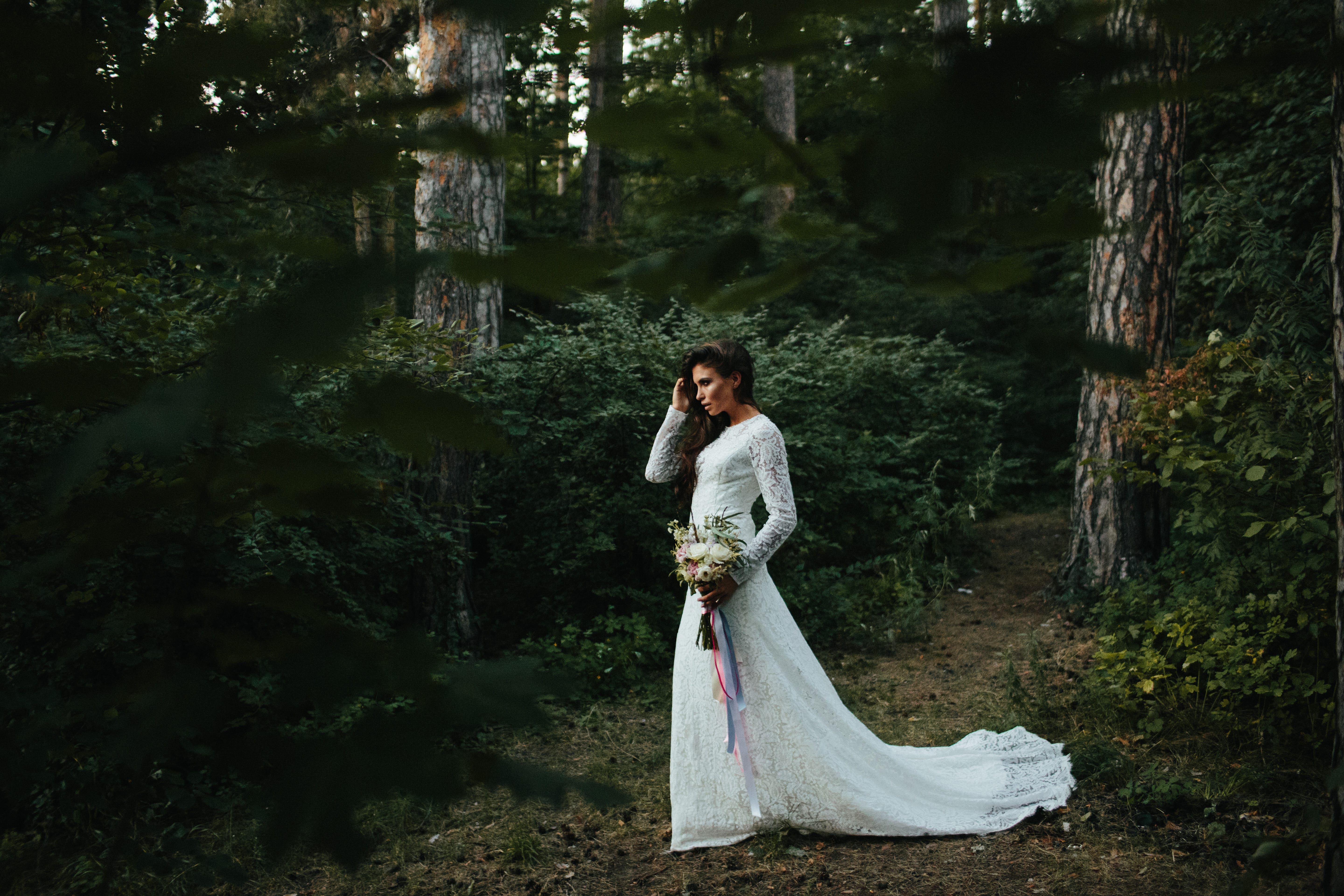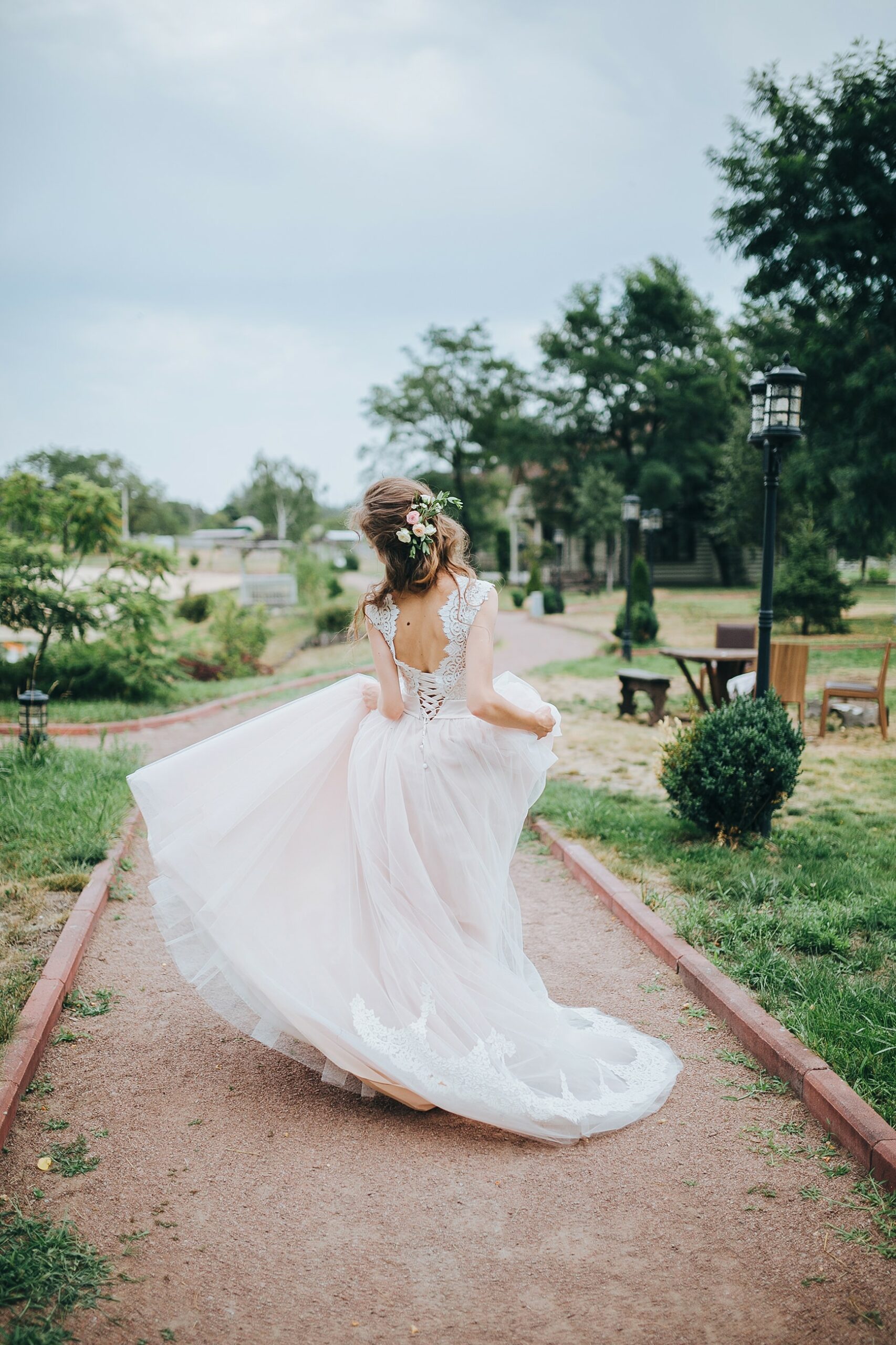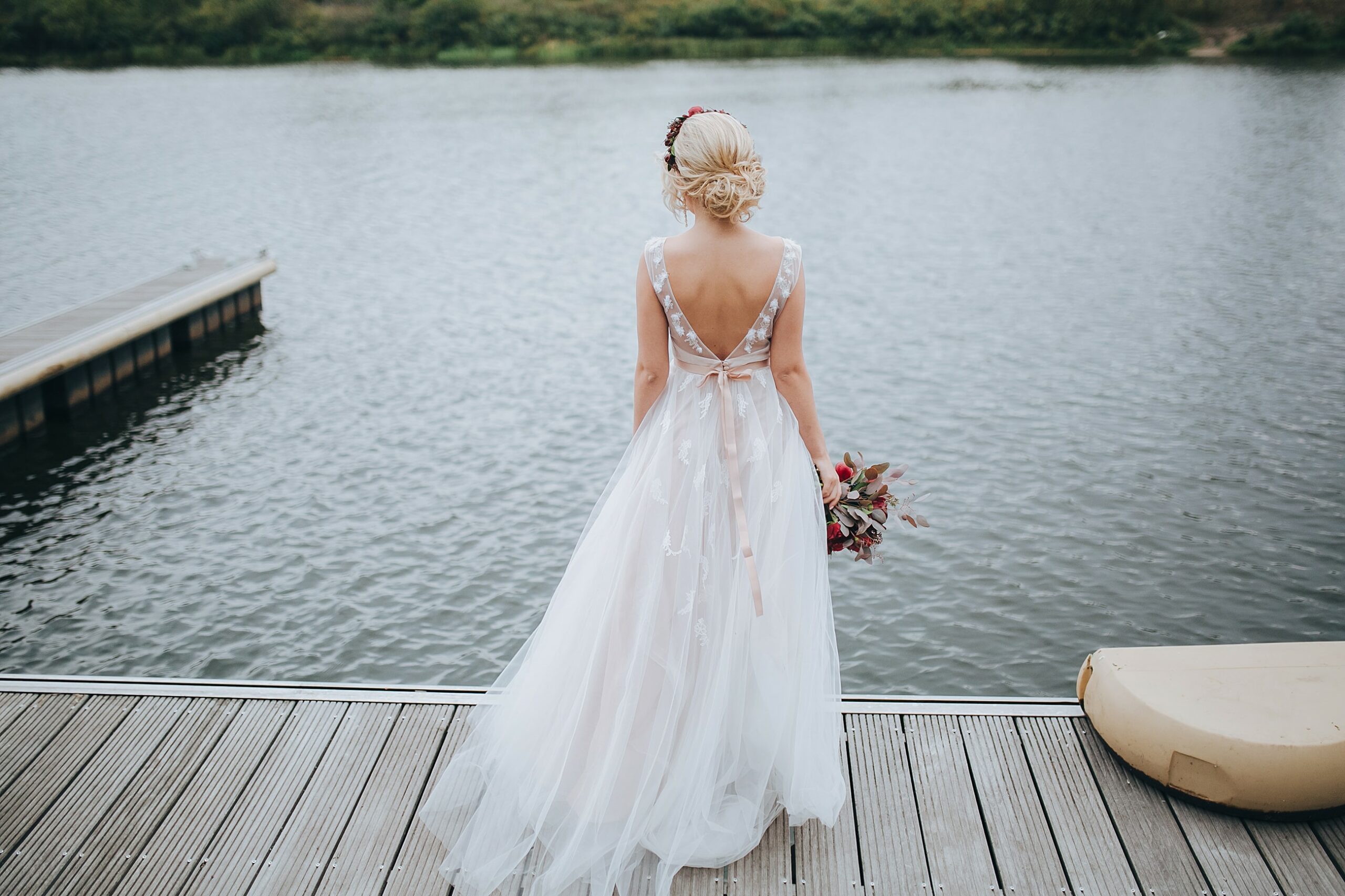Introduction: Your Wedding Dress


The wedding dress is an iconic part of the wedding process. Selecting your wedding dress is a very unique and personal experience where the bride makes a statement about who she is as a person and how she wants to be seen and remembered on her wedding day. For many people, it is also turning a dream into reality. (Can you tell we’re just a little excited for you?!) So to help you with one of the most important, and exciting, decisions in your wedding planning, we have put together everything you need to know about choosing the perfect dress for you.
Choose the time of year
The time of year will dictate the fabric you will choose for your wedding dress. And you should remember that different fabrics have different ‘looks’ and comfort levels, and will ultimately determine the style of your wedding dress. Most wedding dress fabrics are very versatile but heavy fabrics such as velvet and brocade are clearly suited for winter weddings, whereas lighter fabrics like organza and georgette are better suited to summer weddings. Don’t forget to think about this when picking your shoes and veil too, as they must be suitable for the anticipated weather conditions and the chosen venue.
Choose your style of occasion
Time and location of the wedding are crucial when selecting the design of your wedding dress. Small, lavish, religious, indoors, outdoors, modern, traditional or themed – all of these can have an impact! And if it’s a destination wedding, then make sure you have researched the weather!

Make appointments
On average, it takes 6 months for your dress to be made, so bear this in mind when making appointments at different bridal shops and don’t rush your dream dress! And whilst you should allow yourself enough time to give yourself options, don’t overwhelm yourself with an appointment at every boutique within an 100 mile radius. The worst thing in the world could be not finding your dream dress; a very close second is trying on so many that no dress will ever be your dream. Think also about who you should bring to your first few appointments; most boutiques recommend three as a maximum, because too many opinions and voices can be so overwhelming. We think bringing your Mum, Sister or Maid of Honour is enough and will give you the most honest feedback!
Dress shapes
Before you make your first bridal appointment start collecting images of dresses that you like – Pinterest is perfect for this or any other Bridebook inspiration pages such as Instagram, Facebook and Twitter. Try out evening dresses in different silhouettes at various department stores and see what shapes and necklines suit you best. To help you narrow down the choices, here are the most popular wedding dress styles and the shapes that they generally work well with:
Ball gown
Style: Also known as meringue, consists of a fitted bodice and a big and full skirt. Best for: For a slender or petite frame, good for highlighting the waist. Tip: This is the ultimate wedding dress shape and your wedding day is probably the only time that you can wear a dress like this (unless you’re likely to be at the MET Gala one day…)
Fishtail or trumpet
Style: Figure hugging, with a skirt that flares from the knee, good for highlighting curves. Best for: Hourglass, curvy. Tip: This is a quite a restricting dress shape so make sure it’s not going to hold you back from the dance floor.
Sheath
Style: Follows your body’s natural silhouette. Best for: Sleek figures. Tip: A very easy shape to wear, good for summer weddings.
A-line
Style: Fitted bodice with the bottom half of the dress following the shape of the letter ‘A’. Best for: This shape suits most body types, which is why it is the most popular. Tip: Can work with any neckline and sleeve/no sleeve.

Dress Train
Once you’ve chosen the dress shape of your dreams, the next thing to think about is the dress train, which should be comfortable for the bride and suitable for the wedding style. The length of the train should be influenced by the formality and surroundings of your wedding.
Almost all dress styles can have a train, and a lot of the time these can be re-adjusted after the ceremony too. Sometimes they are simply bustled up or removed, but some dresses will often come with a hook to wear on your wrist whilst you boogie.
Here are the different styles of train to help you choose:
Brush
This is the shortest and most modest train style. It lightly ‘brushes’ behind and gives a very subtle volume to the dress. This train length is suitable for all occasions, regardless of the ceremony format or the time of year of the wedding. This would be the best choice for outdoor weddings. Approximate length: 6 inches
Court
This train length is slightly longer then the Brush. This would be suitable for all ceremonies, but could be problematic for outdoor receptions since the train can collect greenery as the bride walks around on grass. Approximate length: 3 feet
Chapel
This is the intermediate train length, between the more modest ‘brush’ and ‘court’, and the very dramatic ‘cathedral’ and ‘royal’ lengths. Approximate length: 5 feet
Cathedral
This train is suitable for formal and traditional weddings. Due to its length, you will need help from the bridal team to make sure that the train is in place before you walk down the aisle and throughout the ceremony. This train will often have a bustle option. Approximate length: 7 feet
Royal
This is the grandest length of train; it makes a statement about the bride and the wedding itself. Similar to a ‘cathedral’ train, this will require assistance to make sure that the train is in correct position and does not interfere at any point while the bride is walking down the aisle. Approximate length: 10 feet
Watteau
This train is a separate piece of fabric that is attached to the top part of the bodice on the wedding dress. This is a more contemporary version of the train. Approximate length: varied.

Choose the right shade of white
It is important to choose the right shade of white that goes well with your skin tone and will work well with the lighting of your wedding venue. Generally, if you are fair skinned you should opt for warmer shades of white, such as Ivory, while darker skin tones should opt for cooler shades of white, with a slight blue undertone. Once the dress has been chosen make sure you try walking in it and sitting down. If you are taking a car to the ceremony make sure the fabric does not crease (and that you and your dress can fit into the car!).
Fittings
Generally speaking you need approximately 6 months for the dress to be made. Work backwards and have your fittings as close to the wedding date as is comfortable. Make the most of each fitting and make sure you attend them with your trusted person, someone whose advice you value and whom you are at ease with.
Underwear
Do not underestimate the power of undergarments. Make sure you consider the practical options when trying on the wedding dress – will you feel supported if it’s completely backless? Will you be able to let your hair down on the dancefloor in a tummy-smoother? You will want to be as comfortable as possible on your wedding day and good underwear is sure to achieve that.
Be yourself!
The final piece of advice is for you to be yourself. Make sure that you are comfortable in whatever dress shape you choose and that you feel beautiful. Make sure your dress isn’t restricting as this will be very obvious when you make your way down the aisle. Choose your best feature and make sure that your perfect dress highlights that.


